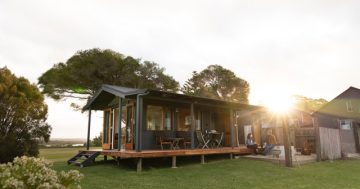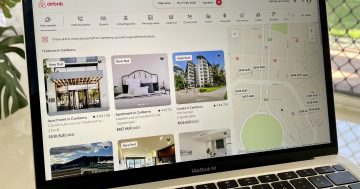
A few weeks ago I got a letter from my Body Corporate saying that the recent Body Corporate meeting had decided that no-one in our complex of 15 units could host Airbnb.
I don’t rent out rooms via Airbnb, but I had contemplated doing it one day. As an owner occupier, I am upset that there are restrictions placed on who could stay in my home if I did want to do it. Why can’t I decide who stays in my unit and when?
From my perspective, I can’t see what the difference is between this and having a flatmate, especially as a flatmate would probably use up even more space in the garage downstairs and maybe contribute more to the communal garbage bin.
Or how is it different to having my Dad stay with me when he comes up to visit his grandkids? Or even inviting a man back to my bachelorette pad with romantic intentions? I am not one to invite in ‘just-met’ Tinder hookups, but people do and how is that more secure than Airbnb?
I had noticed over Easter that one of my neighbours had rented his unit out on Airbnb. He has come to Canberra for work but his wife still lives in Sydney, so he goes back often and rents out his unit when he is not here.
“Airbnb makes it affordable for me to go and see my wife while paying down my home mortgage in Sydney,” he said. He must be doing his hosting well because he has been awarded Superhost status.
I haven’t had much to do with his guests as they have kept to themselves but, on the odd occasion I’ve met them on the stairwell, they have seemed nice enough – pleasant, polite and quiet. Most were middle-aged couples, another time there was a father and his teenage son.
“Often my guests are here because they have business in Canberra, or they are visiting a child studying at ANU,” said my neighbour. “All my guests that stay have ratings so I can see that they have a history of doing the right thing. I have never had a problem with guests mistreating my place or stealing things.”
The motion went to the Body Corporate because one of my neighbours was disturbed about having Airbnb guests in the complex. I cornered her in the lift one day and asked her what her concern was. “I worry about security,” she said. “They have keys to the place, don’t they?”
The answer to that is yes and no. It is a secure complex, so an Airbnb guest would indeed need to have a remote to the garage and a key to get in the front door. But as all apartments have different keys, that is as far as anyone would get in terms of access. I see people I don’t recognise all the time – that is the reality in an apartment complex. Residents come and go, people have parties, boyfriends and girlfriends, and friends who visit.
I asked the body corporate for clarification about the decision, and that’s when I realised the situation in Canberra was very complex.
The body Corporate said its interpretation of relevant ACT Government legislation was that it was arguably illegal for residential properties to host Airbnb guests. It said it was concerned that if residents engaged in Airbnb, it was akin to running a commercial premise and this could be contrary to its insurance policy. In short, it felt that Airbnb was risky.
According to my solicitor, Ross Watch from Trinity Law (who is not a fan of Airbnb and doesn’t want any near him), several other apartment complexes (notably in Braddon) have decided to ban Airbnb. “It is arguable that, if a body corporate decided to uphold a ban strongly, it could go to the ACT Government and say that the owner is in breach of its land use for Crown lease purposes.” That is, your ownership of your property could potentially be rescinded if you dare to have some guests from Airbnb stay over the weekend because the law in the ACT does not support it.
Canberra is way behind other States and Territories in providing a clear policy response on Airbnb or similar accommodation sharing services. I searched the ACT Government website while researching this – I found nothing. I also sent a request for information several weeks ago – I heard nothing back. Yet the ACT Government is leading the way in other aspects of the gig economy (based on short-term tasks or engagements), notably being the first jurisdiction to legalise Uber.
Last year the Victorian Supreme Court heard a case where a body corporate was attempting to ban Airbnb. The decision upheld the idea that apartment dwellers could not prevent other landlords from listing a premise on Airbnb. Tasmania and South Australia also have legislation that allows for accommodation sharing.
But the situation where a tenant lists a property on Airbnb without the landlord’s consent is different – in the landmark ‘Airbnb’ case of Swan v Uecker the Victorian Supreme Court found that an Airbnb is akin to a lease, not a license, so if your rental agreement says you can’t sublet and your landlord doesn’t want you to have Airbnb guests, then you can’t.
Airbnb told me it encourages its hosts to think about their responsibilities including approvals before it creates a listing. It has also launched a Friendly Buildings Program to encourage conversation about respectful and responsible home sharing in strata buildings and to put in place settings to support that.
“We also hear from many hosts that the current laws governing home sharing are unclear and difficult to understand, and in some cases, they were written long before the internet even existed,” said Brent Thomas, Head of Public Policy Australia and New Zealand at Airbnb.
“There is a whole generation of Australians who will only be able to afford to live in strata buildings, but this should not lock them out of the share economy,” he said.
In the nation’s capital where there are not enough accommodation options to handle peak demand periods like Budget week, school holidays and Floriade, it makes sense to me that Canberra should promote accommodation sharing options.
According to the Deloitte Access Economics report Economic Effects of Airbnb in Australia, Airbnb guests are estimated to have spent $20.4 million while visiting the ACT in 2015-16, generating $12.6 million in value added to the ACT economy.
I have several friends who are Airbnb hosts in Canberra who report positive experiences in doing so. In some cases, it is helping people who would otherwise struggle financially – often single women or women who choose to stay home to be with their children. They tell me they enjoy welcoming guests to Canberra, and providing them with a positive local experience that they might not get in an impersonal motel room.
I worry that my friends face an uncertain future because the legal situation in the ACT is unclear. They deserve better – at least they should know if what they are doing is legal in the ACT or not. Come on ACT Government, get with the gig economy and come out with a clear policy stance on this issue.
Do you host Airbnb in Canberra, or do you know anyone who does? Would you stop your neighbour from hosting Airbnb guests?





















